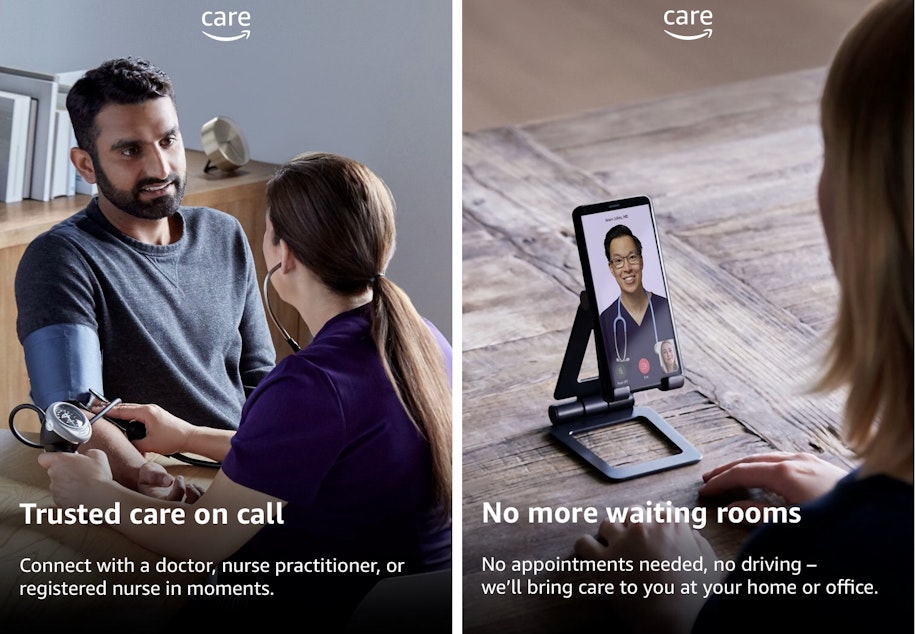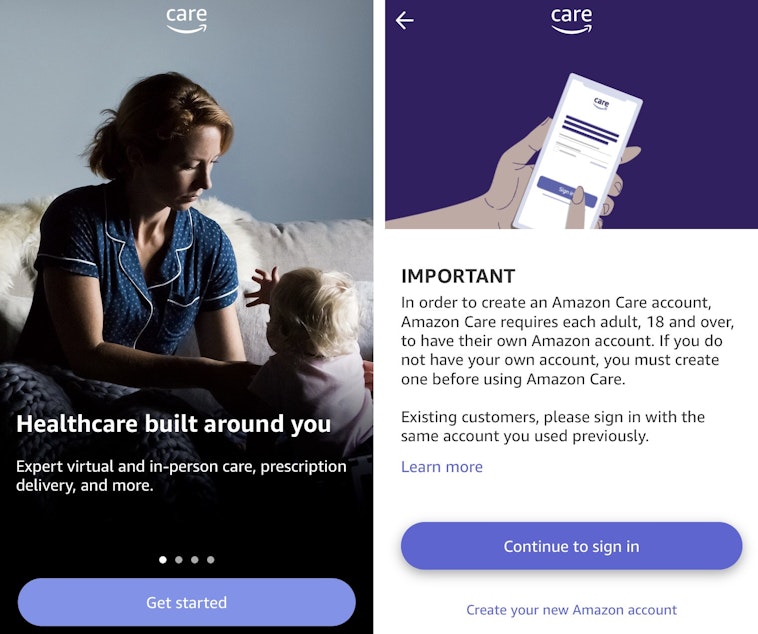App reveals how Amazon could change health care

Health care in the U.S. is a $4 trillion industry, and Amazon has its eye on it.
The company has already made some big health care acquisitions, such as Pillpack.
Now, Amazon has rolled out a health care app, Amazon Care, for its Seattle-area employees.
The app provides a peek into how the company might be thinking about health care for the rest of us.
Here’s how it works:
- If a patient has a problem, the app connects them with a doctor or nurse right away, via video chat.
- An ad for the service promises: “No appointments, no waiting rooms.” After the initial screening, a nurse will come to the employee’s home or office, if that’s required.
- Amazon would be a very different kind of health care provider. It knows what books you read, what chocolate you buy, and it uses powerful artificial intelligence to understand customers more deeply.
- A.I. tools could also be used to diagnose illnesses remotely through analysis of imagery: point your smartphone camera down your throat and say "Ah." Or Amazon could use its influence to corner the pharmacy market.

Dr. Eric Topol is the author of Deep Medicine: How Artificial Intelligence Can Make Healthcare Human Again.
On an episode of KUOW’s podcast Primed, he said Amazon could use its unique power for good or bad.
“Is their priority to achieve a better patient-doctor relationship, or is it going to be to improve their revenue and their enterprise?" he asked. "That is a looming question. What is their priority?”
The website for Haven, a different Amazon health care project, states in part, "our goal is not profit. We’re able to focus on creating value for families, not shareholders, since we are free from profit-making incentives and constraints. The organization will reinvest any surplus back into our work to improve health outcomes, patient satisfaction, and lower costs for individuals and families."
But an Amazon spokesperson said Amazon Care is separate from Haven. So it may have different goals.
This article was corrected from a previous version to indicate that health care in the U.S. is a $4 trillion industry, not a $4 billion industry.




